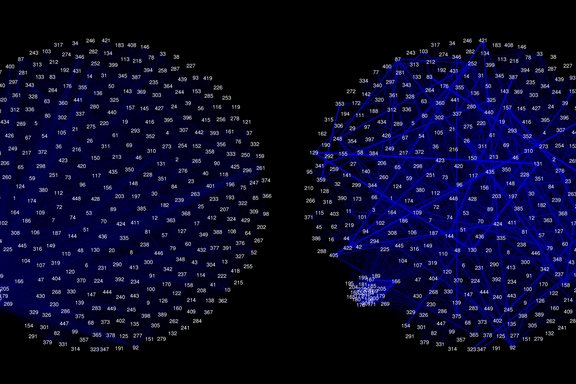Methodologien und Methoden der Politikwissenschaft
Über
Wir arbeiten an der Verbreitung und Verbesserung von Methoden der Politikwissenschaft. Ziel ist es Methoden aufzuzeigen und zu entwickeln, welche politikwissenschaftliche Fragen möglichst effizient, effektiv und transparent beantworten. Das Team beschäftigt sich vor allem mit der quantitativen Erfassung und Analyse von großen Datenmengen.
Der Forschungsprozess umfasst meist drei Schritte: die Datensammlung, die Informationsgewinnung und die deskriptive und inferentielle Datenanalyse. Unsere Agenda orientiert sich an diesen drei Phasen:
Datensammlung
Die Datenmenge im Web hat bereits im Jahr 2000 die Datenmenge von allen Bibliotheken der Welt überstiegen und wächst rapide. Dies versuchen wir als Forscher*innen auszunutzen und gewinnen einen Großteil unserer Daten durch sogenanntes “Web Scraping”. Wir erstellen dazu Technologien, welche den gezielten Download von Daten aus dem Internet ermöglichen.
Informationsgewinnung
Da ca. 80 Prozent der Information im Internet Text ist, spielt die computergestützte Textanalyse eine wichtige Rolle in unserem Forschungsprozess. Wir skalieren Texte nach bestimmten Dimensionen (politische Ideologie, Fortschritt versus Stagnation in Verhandlungen etc.), messen Zitate und Plagiate zwischen Texten und versuchen latente Konzepte in Texten zu verstehen. All dies ermöglicht uns Informationen, welche zur Beantwortung unserer Fragestellungen relevant sind, von großen unstrukturierten Datenmengen zu gewinnen.
Datenanalyse
Das Team arbeitet mit diversen statistischen Verfahren, um die Daten deskriptiv und inferential zu analysieren. Neben klassischen Verfahren, wie Regressionsanalysen, beschäftigen wir uns mit Netzwerkanalysen. Das Zusammenleben von Menschen und Gesellschaften funktioniert in Netzwerken. Spezielle Methoden erlauben uns die Dynamiken in diesen Netzwerken zu erforschen.
Mitglieder
Aktuelle Projekte
Projekte, Stipendien und sonstige Drittmittel
Projekte
- Steinmayr, Andreas; Duell, Dominik: Arbeitsmarktintegration von Geflüchteten aus der Ukraine mit besonderem Schwerpunkt auf Frauen.
Arbeitsmarktservice (AMS)
15.11.2023 - 31.05.2024 - Wierer-Lechner, Lisa Maria: TEXNET. Policy-diffusion across international institutions: A text-network approach.
Leopold-Franzens-Universität Innsbruck - Vizerektorat für Forschung, Nachwuchsfördermittel aus der Nachwuchsförderung der LFU
01.03.2020 - 31.03.2025
Aktuelle Publikationen
Publikationen
Beiträge in Büchern / Zeitschriften
Zeitschriftenaufsatz (Originalarbeit)
- Duell, Dominik; Kaftan, Lea; Proksch, Sven-Oliver; Slapin, Jonathan; Wratil, Christopher (early view): The rhyme and reason of rebel support: exploring European voters’ attitudes toward dissident MPs.
In: Political Science Research and Methods. (DOI) (Weblink) - Duell, Dominik; Kaftan, Lea; Proksch, Sven-Oliver; Slapin, Jonathan; Wratil, Christopher (2023): Communicating the Rift: Voter Perceptions of Intra-Party Dissent in Parliaments.
In: Journal of Politics 85/1, S. 76 - 91. (DOI) (Weblink) - Gerver, Mollie; Lown, Patrick; Duell, Dominik (2023): Proportional Immigration Enforcement.
In: Journal of Politics 85/3, S. 949 - 968. (DOI) (Weblink)
Sammelbandaufsatz (Originalarbeit)
- Gerver, Mollie; Lown, Patrick; Duell, Dominik (2023): Experimental Immigration Ethics.
In: Lindauer, Matthew: Advances in Experimental Political Philosophy. London [u.a.]: Bloomsbury Publishing., ISBN 9781350254251, S. 187 - 214. (Weblink)
Weitere Publikationen finden Sie hier: https://lfuonline.uibk.ac.at/public/pk115_web.frame



